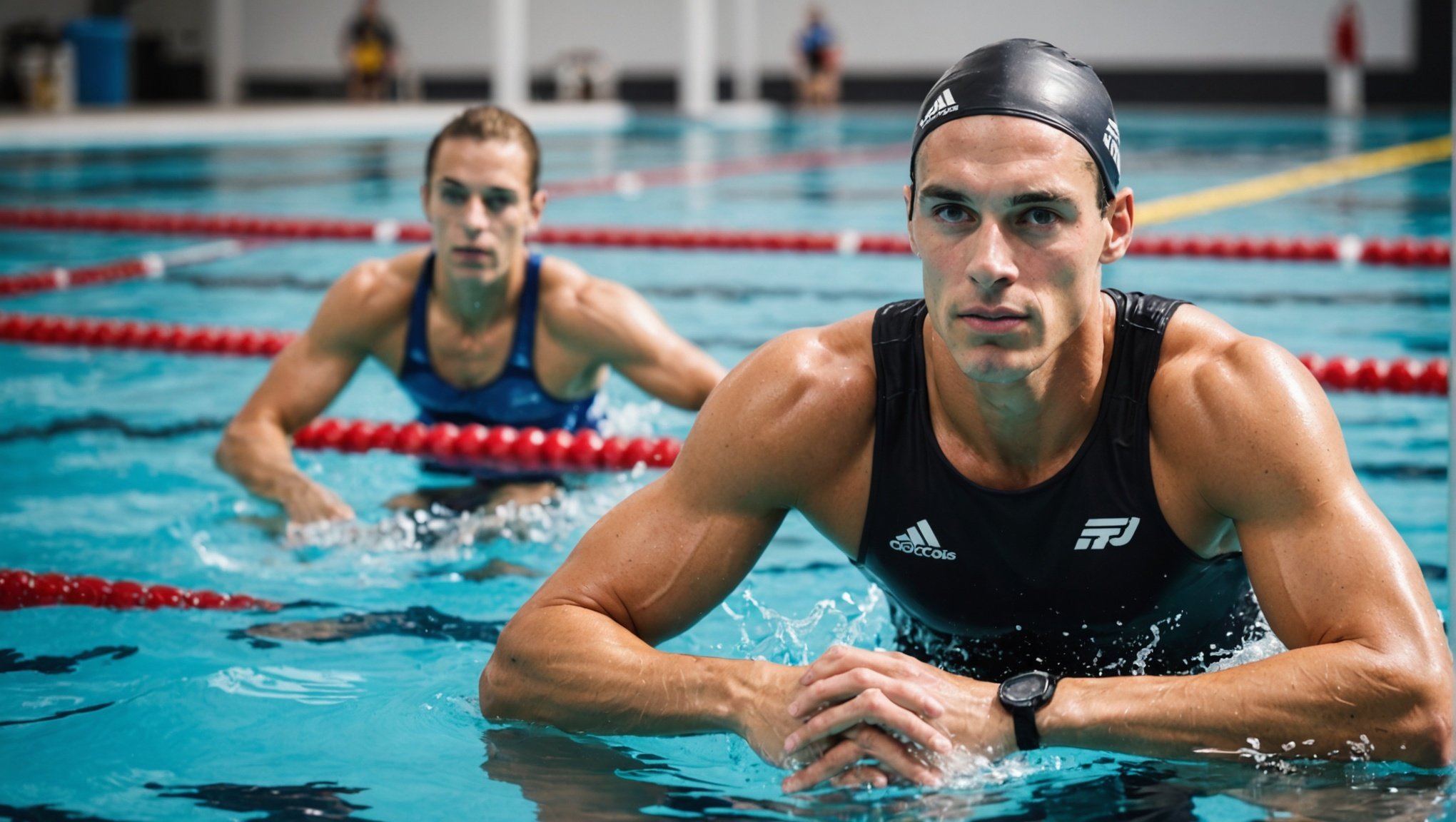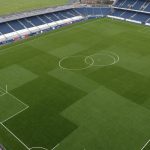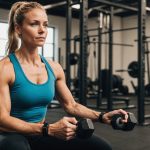Overview of Essential Nutrients for Swimmers
High-performance swimming demands a careful balance of essential nutrients to support the body’s needs during intensive training. Both macronutrients and micronutrients hold equal importance for optimum performance. Macronutrients, comprising proteins, carbohydrates, and fats, provide the primary fuel and repair resources for muscles. Proteins aid in muscle recovery and growth, carbohydrates replenish energy stores, and fats supply long-term energy requirements during prolonged sessions. Micronutrients, such as vitamins and minerals, ensure proper physiological functions, contributing to energy production and efficient muscle contractions.
Hydration has a particularly crucial role in both performance and recovery. Effective hydration strategies must go hand-in-hand with swimmer nutrition to prevent dehydration, which can severely impair physical performance and increase the risk of injury. Regular fluid intake before, during, and after training ensures that fluid balance is maintained throughout the day.
Have you seen this : Maximizing Performance: The Best Cross-Training Techniques for Competitive Figure Skaters
A training season divides into different phases, each with distinct nutritional demands. During pre-season, energy needs are moderate but increase significantly as training intensifies during the competitive phase. In off-season times, emphasis shifts from energy to nutrient quality to recover and prepare for the next cycle. Staying attuned to these needs supports sustained health, optimal performance, and successful training outcomes.
Proteins: Building Blocks of Muscle Recovery
Proteins are essential for muscle recovery, acting as the primary building blocks necessary for repairing and growing muscle tissue. For swimmers, who often engage in intense and repetitive training, proteins play a crucial role in supporting their physical demands. They help repair the microscopic tears in muscle fibers caused by strenuous exercise, promoting faster recovery and reducing muscle soreness.
Also read : Best Sock Styles to Prevent Blisters on Extended Hiking Adventures
Key Benefits
The consumption of adequate protein aids in the efficient repair of muscle tissue, allowing swimmers to recover quickly and maintain peak performance levels. Proteins also contribute to muscle hypertrophy, which is crucial for swimmers seeking to improve strength and endurance.
Best Dietary Sources
Swimmers should focus on incorporating a range of protein sources into their diet for optimal muscle recovery. Excellent options include:
- Lean meats such as chicken or turkey
- Fish like salmon or tuna
- Dairy products such as yogurt or milk
- Plant-based options like beans, lentils, and tofu
Recommended Intake
To maximize muscle recovery, it is recommended that swimmers consume protein within 30 minutes to two hours post-exercise. This timing helps ensure that amino acids are rapidly available for muscle repair. The amount of protein needed can vary depending on body size and training intensity, but generally ranges from 1.2 to 2 grams of protein per kilogram of body weight daily.
Carbohydrates: Fueling Performance
Carbohydrates are crucial energy sources for athletes, providing the necessary fuel for sustained performance. They break down into glucose, which muscles use during exercise. Carbohydrates are essential for maintaining optimal energy levels, especially for endurance activities.
Types of Carbohydrates: Simple vs. Complex
Carbohydrates are classified into simple and complex. Simple carbohydrates include sugars found in fruits and sweets. They’re quickly digested, providing an immediate source of energy. However, simple carbs are short-lived and often lead to energy spikes followed by crashes.
Complex carbohydrates, on the other hand, are found in foods like whole grains, beans, and vegetables. They consist of longer chains of sugar molecules and digest slower. This results in a more stable energy release, supporting endurance activities over extended periods.
Strategies for Carbohydrate Loading Before Competitions
Carbohydrate loading is a strategy used by endurance athletes to maximize the storage of glycogen (energy) in the muscles and liver. This involves adjusting carbohydrate intake leading up to the competition.
- Increase complex carbohydrates intake several days before the event.
- Reduce training intensity to allow glycogen stores to accumulate.
- The day before an event, focus on carbohydrate-rich meals to ensure muscle glycogen stores are fully stocked.
Carbohydrates are vital to athletic performance. Correct utilization can enhance endurance and sustain energy levels.
Healthy Fats: Supporting Long-Distance Energy Needs
In the realm of swimmer nutrition, healthy fats serve a pivotal role in providing sustained energy required for long-distance swimming. Apart from their energy-providing capabilities, healthy fats are crucial for hormone production and maintaining overall health.
Role of Healthy Fats
Healthy fats contribute to creating hormones essential for the body’s metabolic processes and also aid in the absorption of vital vitamins. This results in a well-rounded support system for a swimmer’s robust dietary needs.
Best Sources of Fats
A swimmer’s diet should include sources of healthy fats such as:
- Avocados: Rich in monounsaturated fats, promoting heart health.
- Nuts and seeds: Providing a combination of healthy fats and protein.
- Fatty fish, like salmon and mackerel: Offering omega-3 fatty acids for inflammation reduction.
- Olive oil: Known for its antioxidant properties.
Balancing Fats with Carbohydrates and Proteins
To harness the full potential of healthy fats, swimmers should balance them with carbohydrates and proteins. Carbohydrates are crucial for quick energy bursts, while proteins aid in muscle repair and growth. This balance ensures consistent energy levels and better performance during long swims. Through an effective combination of these nutrients, swimmers can optimize their diet and meet their metabolic demands effectively.
Vitamins and Minerals: Micronutrients for Optimal Performance
Swimmers rely heavily on essential vitamins and minerals for peak performance. These micronutrients play a critical role in maintaining general health, enhancing endurance, and speeding up recovery times. Vitamins like Vitamin D are vital for bone health, while Vitamin C aids in the repair of tissues and supports the immune system. Similarly, minerals such as iron support oxygen transport, which is critical during intense swimming sessions.
A deficiency in these micronutrients can lead to adverse effects on performance and recovery. For example, a lack of iron can result in decreased stamina, while insufficient Vitamin B12 can affect energy levels and muscle recovery. Swimmers who find themselves regularly fatigued or unable to recover well after training may need to assess their vitamin and mineral intake.
Balancing dietary intake to ensure you get the necessary vitamins and minerals from food is always preferred. However, nutritional supplements can be a practical solution when dietary limitations make it difficult to achieve optimum nutrient levels. Foods rich in these nutrients, such as fish, leafy greens, and nuts, should form the core of a swimmer’s diet. When opting for supplements, it’s crucial to choose high-quality options and consult with a healthcare professional to meet individual needs.
Meal Planning and Preparation for Swimmers
Having a structured meal planning strategy can significantly impact a swimmer’s performance and recovery. For those with hectic timetables, efficient nutrition strategy is crucial. Begin by prepping meals in advance to avoid last-minute, less nutritious choices. Start with a basic meal prep routine: devote a couple of hours on the weekend to prepare grains, proteins, and vegetables in bulk.
Training requires energy, making both pre- and post-training meals essential. Before training, focus on easily digestible carbs like oatmeal or bananas to fuel your workout. Post-training, prioritize protein-rich foods such as chicken or tofu alongside complex carbs like brown rice to aid recovery.
Creating sample meal plans can help streamline your nutrition strategy. For instance, a breakfast smoothie with spinach, banana, and almond milk offers a quick, nutritious start. A lunch of quinoa salad with chickpeas and kale provides sustained energy, while dinner might feature grilled fish with sweet potatoes and broccoli for muscle recovery.
With these practical strategies and meal plans in place, you can ensure that your nutrition supports your training goals, optimising performance and recovery in the pool.
Expert Insights on Swimmer Nutrition
Swimmers seeking peak performance must pay close attention to their nutrition. Insights from nutrition experts and seasoned swimmers converge on the importance of individualized nutrition plans. Maintaining swimmer health hinges on a dietary regimen tailored to meet the unique demands of training intensity and personal physiology.
Advice from both professional swimmers and nutritionists highlights the need for a well-rounded diet rich in carbohydrates, proteins, and healthy fats. Coaching tips often emphasize the timing of meals to optimise energy levels and recovery. Consuming carbohydrates shortly before a workout can provide crucial fuel, while protein post-exercise aids in muscle repair.
However, common nutritional pitfalls abound. Competitive swimmers frequently fall prey to inadequate calorie consumption or poor meal timing, which can lead to fatigue and decreased performance. Ignoring individual dietary needs is another trap that can affect progress. Tailored plans account for the varying caloric and nutrient needs based on the swimmer’s body type and the intensity of their workouts.
Nutrition experts advocate for flexible plans that adapt to the swimmer’s evolving goals and seasonal changes in competition schedules. Integrating these insights into daily routines can aid swimmers in reaching their full potential and maintaining optimal health throughout their careers.






